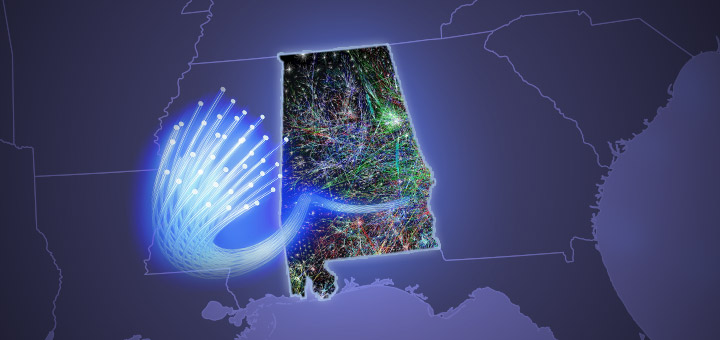
OPELIKA, Ala. — A Republican senator is proposing a bill that would allow Alabama cities to build out their own fiberoptic internet access, sparking a debate between municipal leaders who tout the economic development possibilities and some conservatives who view it as government encroachment on private enterprise.
Sen. Tom Whatley (R-Opelika) has proposed nixing current restrictions on municipalities, so those towns and cities can enter the business of providing internet services to their more rural citizens. Currently, cities are allowed to provide communications services only to individuals inside the city limits.
In 2013, the city of Opelika, population 28,635, issued bonds to fund the installation of fiberoptic cable through its Opelika Power Services (OPS).
OPS already provides electric, cable, phone, and internet services to Opelikans, but the proposed bill would allow them to extend their offerings outside the city limits.
Because Opelika’s city limits directly abut Auburn’s, there are currently several parts of the town that have access to OPS on one side of the street, but not on the other side.
In one of the more extreme examples, the main building at the local airport has access to OPS fiberoptic internet because it is in Opelika, but the hangar does not, because it is within the City of Auburn.
June Owens, the OPS manager of marketing and communications, told Yellowhammer Friday that the city had attempted to negotiate with the local private cable and internet companies to provide service to some of their more rural citizens, but the companies refused.
Opponents of the proposal to allow cities to operate such utilities outside their limits argue that the government should not be in business competing against the private sector.
Chattanooga, Tennessee has been the highest-profile example of a city installing and running its own fiberoptic internet service, which it calls ChattanoogaGig, because of the 1 gigabit per second speeds offered—200 times faster than the national average. Chattanooga received a $111 million grant from the U.S. Department of Energy to complete the project.
The federal government has taken an interest in making sure every American has access to high speed internet. According to a 2013 census report, 73.4 percent of American households and and 68.7 percent of those in Alabama — the majority who do not live in rural areas — already have access to high speed internet.
Ms. Owens said that high internet speeds have become integral to the city’s efforts to attract businesses to the area.
“When you’re trying to recruit industry, back in the day they wanted to know about your road infrastructure, how close you were to the main highway, what was your water system and phone service. Today they want to know what is your communications infrastructure system like.”
Several other Alabama cities are also investigating the possibility of installing their own communications systems, should the bill pass.
Like this article? Hate it? Follow me and let me know how you feel on Twitter!
— Elizabeth BeShears (@LizEBeesh) January 21, 2015
Don’t miss out! Subscribe today to have Alabama’s leading headlines delivered to your inbox.